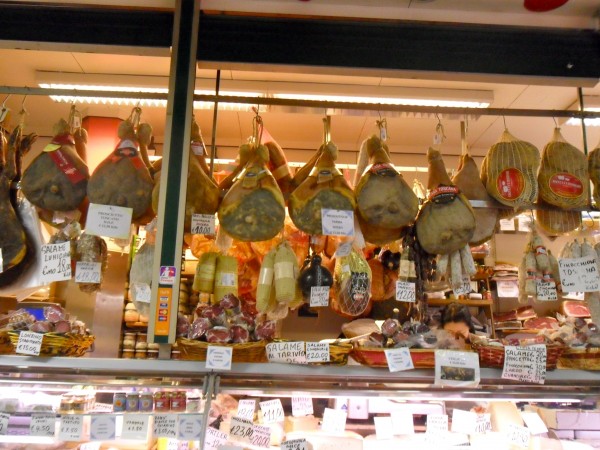
There are a lot of misconceptions about vegetarianism.
In basic terms, a vegetarian is someone who commits to a diet that does not include meat, poultry or fish. However, vegetarianism is more than simply substituting tofu and soy for meat products. It is a personal choice that might be based on religious, ethical, health or economic reasons. There are some who are more flexible in their food decisions and choose to eat fish on occasion (i.e. pescetarians) and others who are committed to a lifestyle in which they do not consume any animal products (i.e. vegans). Yet, no matter the reasoning behind it or the extent to which it is practiced, vegetarianism, when followed properly to ensure adequate nutrition, can promote a positive and healthy lifestyle.
The transition to a plant-based diet may at first seem as simple as abstaining from meat, vegetarianism is more complicated. There are many ingredients in common foods that challenge the norms of the herbivore lifestyle. Items such as yogurt, packaged cookies and salad dressings could contain ingredients that aren’t very animal friendly.
Before your next purchase, scan the ingredient list for the items below. These unsuspecting items are byproducts of animal slaughter and are typically avoided by vegetarians. For those considering a plant-based lifestyle, abstention from these products ensures a diet loyal to the basic tenets of vegetarianism.
**Tips and Tricks**
1. Gelatin: For evenings around the campfires, marshmallows are a staple accompaniment. The campfire classic and any other marshmallow-like foods include gelatin, thereby making them unsuitable for a loyal vegetarian diet. Derived from collagen, gelatin comes mainly from pig skin and cattle bones. As the base for marshmallows and other gummy candies, gelatin can also be used to thicken or stabilize foods, including jams and yogurts. Lower fat products, such as ice cream, might also include gelatin as a way to increase volume. Surprisingly, many medicinal capsules also contain gelatin because it makes pills easier to swallow.
Commonly found in: Marshmallows, yogurt, gummy candies, jams
2. Rennet: Vegetarians who have decided not to give up animals products entirely allow themselves to eat eggs, milk and cheese. Unbeknownst to man, however, some of our favorite dairy products are not vegetarian friendly because of the presence of rennet. Rennet is a set of enzymes produced from mammalian stomachs (including cows, goats and sheep) that is used to coagulate the dairy in milk and cheese. Since rennet is collected after slaughter, most vegetarians avoid foods made with the enzymes. Parmesan, Gorgonzola and Grana Padano cheeses cannot be made vegetarian, as their traditional methods specify the use of cow rennet. Fortunately, there are many cheese manufacturers who have switched to using vegetable rennet instead of the animal-based product, but always check the ingredient labels to be sure.
Commonly found in: Milk and cheese products
3. Lard: Wondering why your grandmother’s pie crust always came out golden, crispy, flaky and richly-flavored? Chances are the crust’s lauded perfection resulted from lard. Lard comes from the fatty tissue in pigs and is commonly used as cooking fat comparable to butter and shortening. Because of its high fat content, lard is often used in baking pastries and doughs, and sometimes for deep frying. Although it is more costly than other fats, many chefs swear that it is superior to butter and oil. Even so, it should be avoided by vegetarians at all costs.
Commonly found in: pie crusts, rolled doughs
4. Anchovies: Whether or not it is acceptable to eat fish is a question up for debate among vegetarians. Those who choose not to eat it might be surprised to know that the oily fish lurks in many sauces.
With its pungent flavor, anchovies are traditional inclusions in Worcestershire sauce, Caesar salad dressing and sometimes in pasta sauces. For those looking to abstain from fish completely, carefully read ingredient lists and be sure to inquire about how vegetarian-friendly a dish is before ordering at a restaurant. Unless the kitchen prepares all of its dressings and sauces by hand, it is likely that the waiters will not know all of a dish’s components, making it possible that an unsuspecting fish-item could be in your bowl of salad greens or pasta.
Commonly found in: Worcestershire sauce, Caesar dressing, pasta sauces
Bethany Imondi, a rising senior studying Government and English at Georgetown University, is still on a search for inexpensive, vegetarian-friendly gummy vitamins. Read more…
Originally posted on Thursday, July 12th, 2012










2 Responses to “Nutrition and Health Tip: Hidden, Non-Vegetarian-Friendly Ingredients”
July 12th, 2012
[...] original here: Nutrition and Health Tip: Hidden, Non-Vegetarian-Friendly Ingredients Category: Vegetarianism | Tags: bethany-imondi, budget, campus-cooking, college, college-gloss, [...]
July 19th, 2012
[...] What do marshmallows, pie crust, and Caesar salad dressing have in common? They’re all off-limits for strict vegetarians. [Via Small Kitchen College] [...]
Leave a Reply